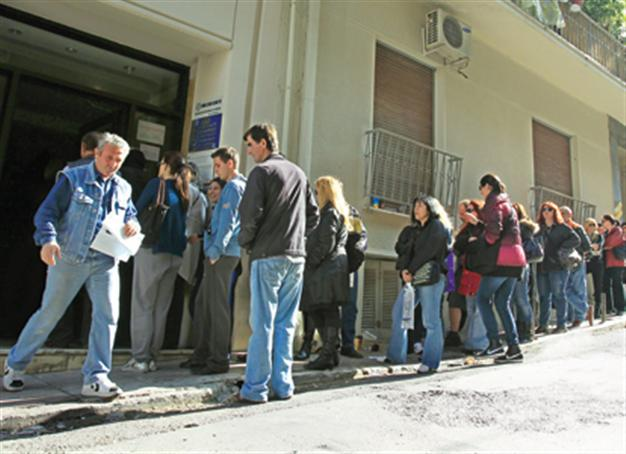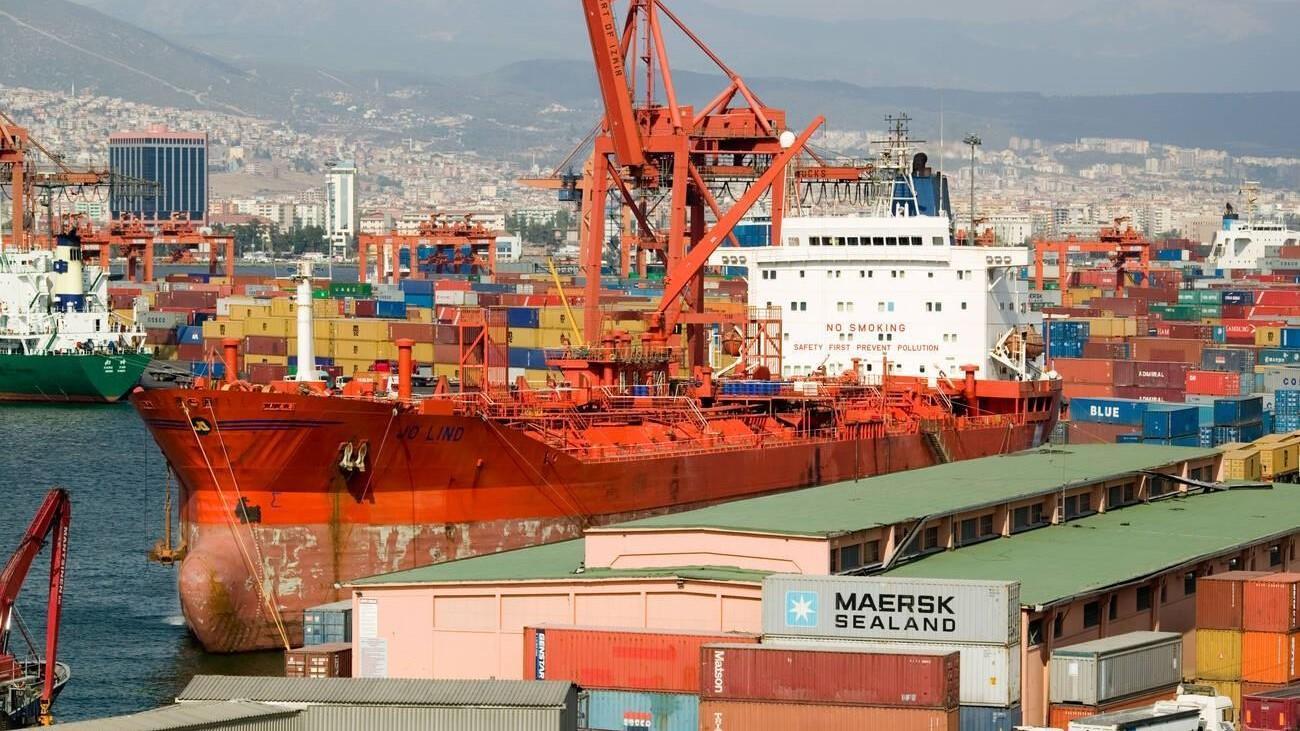OECD warns of global threats
PARIS - Reuters

Unemployed Greeks wait in a long line at a state labor office to collect benefit checks in the Greek capital of Athens on Oct 24. The counrty is at the heart of the eurozone crisis as it is expecting a fourth year of recession in 2012, and is suffering from a big unemployment. AP photo
The global economic recovery is running out of steam, leaving the eurozone stuck in a mild recession and the United States at risk of following suit, the the Organization for Economic Cooperation and Development said yesterday, sharply cutting its economic growth forecasts.
The threat of even more devastating downturns looms if the eurozone does not get to grips with its debt crisis and U.S. lawmakers fail to agree a spending-reduction plan, the OECD warned.
In the absence of decisive action from eurozone leaders, the European Central Bank (ECB) alone has the power to contain the bloc’s crisis, the Paris-based OECD said. In the United States, however, the Federal Reserve had little ammunition left.
While solid growth in big emerging economies would provide a boost, slumping global trade would drag on Chinese output, the OECD said.
Its twice-yearly Economic Outlook forecast world growth would slow to 3.4 percent in 2012 from 3.8 percent this year. That marks a sharp fall from its previous outlook in May, when the OECD estimated the world economy would grow 4.2 percent this year and 4.6 percent in 2012.
Struggling to contain an unprecedented debt crisis, the eurozone has already entered a recession and will eke out growth of only 0.2 percent in 2012, the OECD said, slashing its forecast from 2 percent in May.
OECD’s forecasts for Turkey are for a 7.4 percent economic growth this year, followed by 3 percent in 2012 and 4.5 percent in 2013.
Still no clarity ahead
The OECD said many key questions about the eurozone’s response to the debt crisis remain unresolved, raising doubts about even the bloc’s most solid economies, as demonstrated by Germany’s difficulties placing bonds with investors last week.
“What we see now is contagion rising and hitting probably Germany as well,” OECD chief economist Pier Carlo Padoan told Reuters in an interview. “So the first thing, the absolute priority, is to stop that and in the immediate the only actor that can do that is the ECB.” Padoan urged the central bank to commit to a creating a cap on government bond yields as a way of calming the crisis.
With the Federal Reserve already flooding the financial system with liquidity, the U.S. central bank has even less room to act if the world’s biggest economy hits a downturn. That prospect was made all the more real by the failure of Congress to agree a deficit-reduction plan, without which deep spending cuts would be triggered.
“The resulting fiscal tightening, which would come automatically, would in our view likely generate a recession in the United States,” Padoan said.
Provided that the Congress does reach an agreement, then the U.S economy is set to grow 1.7 percent in 2011 and 2 percent in 2012, down from May forecasts of 2.6 percent and 3.1 percent respectively.
The organization forecast that growth in China would slow to 8.5 percent in 2012 from 9.3 percent in 2011.
In a rare bright spot, the Japanese economy was seen rebounding sharply after this year’s earthquake and tsunami to achieve growth of 2 percent in 2012 following a contraction of 0.3 percent in 2011
















